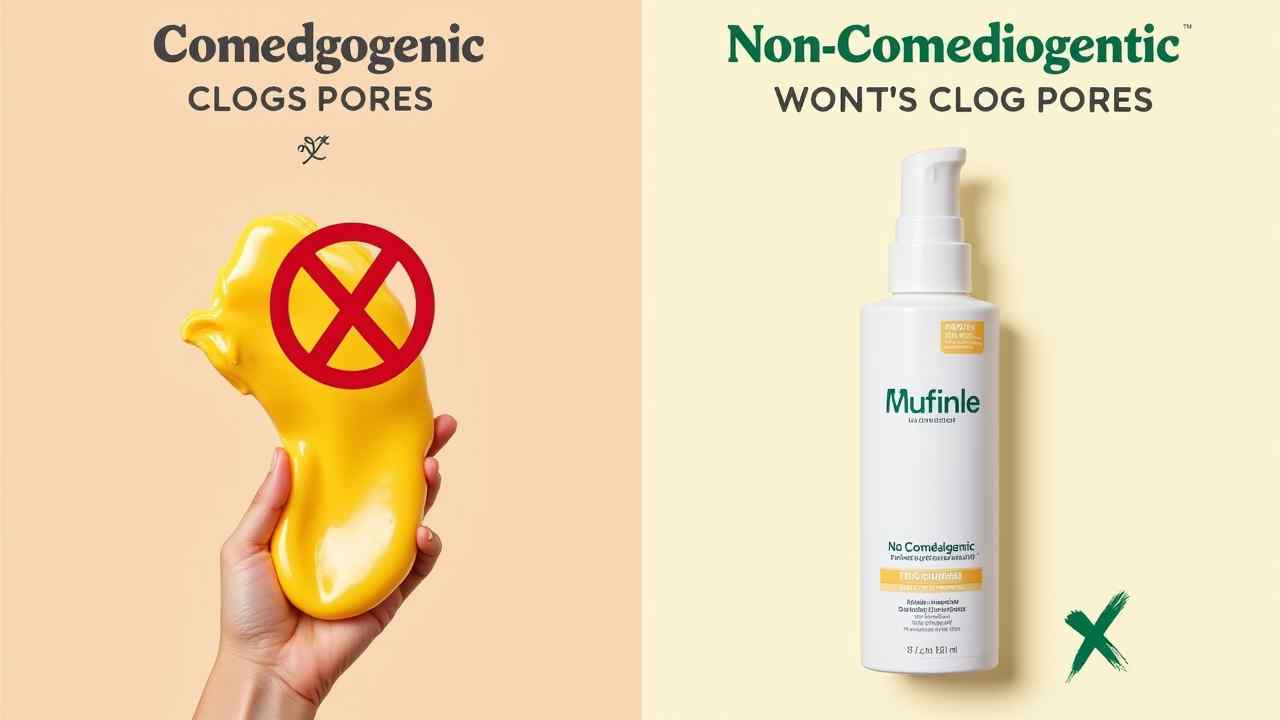
🧴 Can Sunscreen Cause Acne? A Dermatologist's Guide on What to Do
🧴 Can Sunscreen Cause Acne? A Dermatologist's Guide on What to Do 🧴
You are doing everything right for your skin. You are wearing sunscreen every single day to protect against sun damage and premature aging. But you have noticed a frustrating side effect: new pimples and clogged pores. This leads to a very common and important question, can sunscreen cause acne and what do you do about it?
The answer is yes, it absolutely can. However, this does not mean you should stop using it! Sunscreen is the most important part of any skincare routine. The solution is not to ditch it, but to find the right formula for your skin and to remove it properly.
This guide will explain why some sunscreens cause breakouts. We will also give you a clear action plan. Let's get you on the path to clear and protected skin. ✅
🤔 Why Do Some Sunscreens Cause Breakouts?
When a sunscreen causes acne, it is usually for one of three reasons. Understanding the cause will help you choose a better product. The problem is not the sun protection itself, but the formula it is delivered in.
1. Comedogenic Ingredients: This is the most common cause. "Comedogenic" is a scientific term for an ingredient that is likely to clog your pores. Some sunscreens, especially older or heavier formulas, can contain oils or silicones that can lead to blackheads and whiteheads.
2. Trapping Sweat and Oil: A thick, occlusive sunscreen can create a film on your skin. This can trap sweat, oil, and bacteria underneath. This creates the perfect environment for acne-causing bacteria to thrive.
3. Irritation: Some people find that certain chemical UV filters can irritate their skin. This inflammation can sometimes trigger breakouts.
- What to Do: Your 4-Step Action Plan for Clear, Protected Skin
If you suspect your sunscreen is causing breakouts, here is your simple plan for what to do. This will help you find a product that works for your skin.
Step 1: Look for the Magic Words on the Label
When you are shopping for a new sunscreen, you must become a label detective. Look for products that are specifically marketed for your skin type. The most important phrases to look for are:
- Non-Comedogenic (this means it has been tested and is proven not to clog pores)
- Oil-Free
- For Acne-Prone Skin
Step 2: Choose a Mineral (Physical) Sunscreen
There are two types of sunscreens: chemical and mineral. For acne-prone and sensitive skin, mineral sunscreens are often the better choice. These use ingredients like Zinc Oxide and Titanium Dioxide.
Mineral sunscreens work by sitting on top of the skin to physically block UV rays. They are less likely to cause irritation than chemical sunscreens, which work by being absorbed into the skin. Zinc oxide is also known to have anti-inflammatory properties, which can be calming for acne.
Step 3: Opt for a Lightweight Formula
The texture of the sunscreen matters. Look for formulas that are lightweight and absorb easily. Excellent choices for acne-prone skin are often labeled as a gel, fluid, or lotion. Avoid heavy, thick creams.
Step 4: You Must Double Cleanse at Night
This is a non-negotiable step. Sunscreen is designed to be water-resistant and to stay on your skin. A single wash with a regular cleanser is often not enough to remove it completely. Leftover sunscreen is a major cause of clogged pores.
A double cleanse is the solution. First, use an oil-based cleanser or a micellar water. This will break down and dissolve the sunscreen and oils on your skin. Then, follow up with your regular, gentle, water-based cleanser. This will wash everything away. This is the most important thing you can do to prevent sunscreen-related acne. Even on a cool autumn day here in Bursa, daily sunscreen and a good cleanse are essential! 🍂